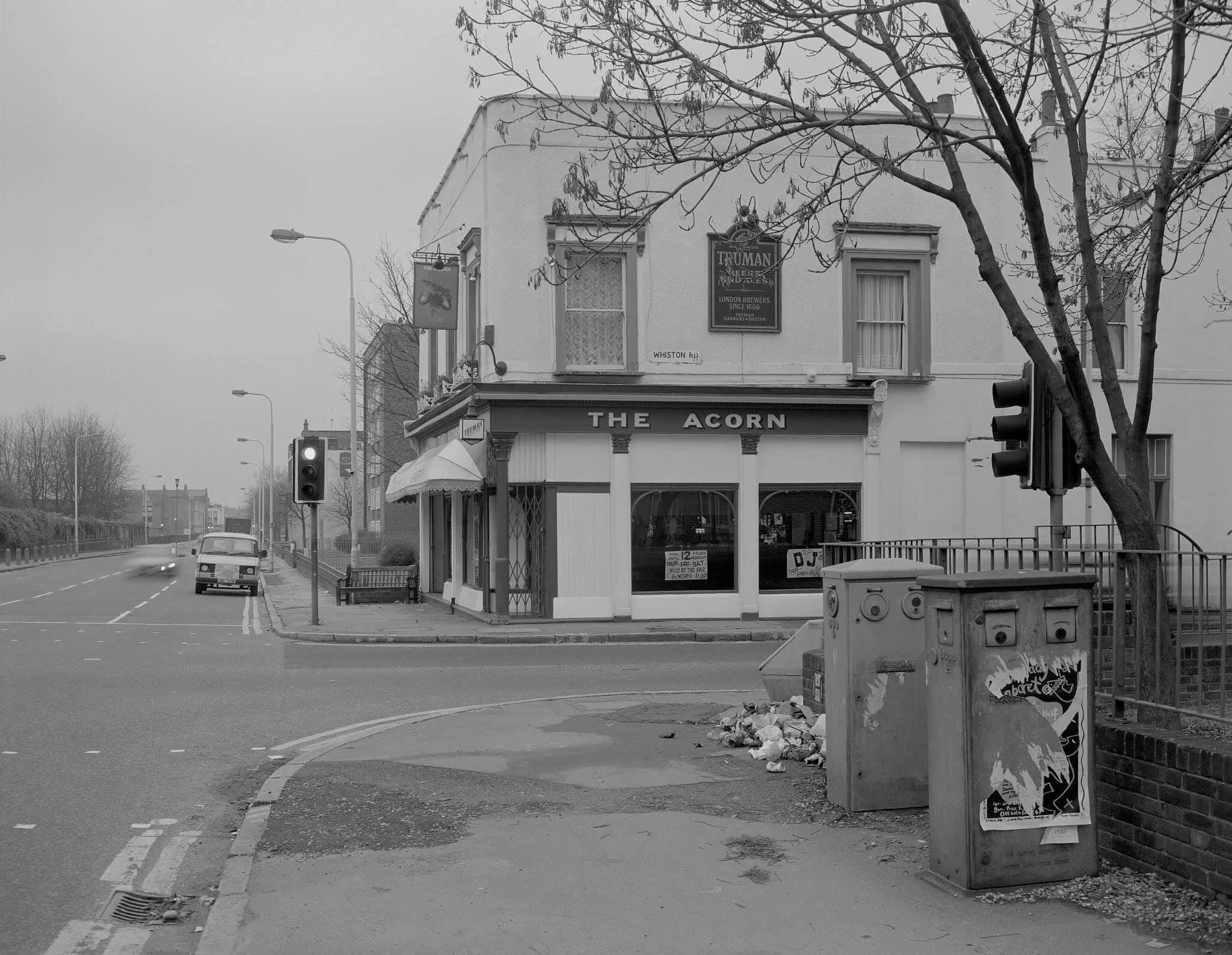The Acorn, Hackney

Despite being situated in a constantly evolving city, the vital role the public house plays in the community is a lifeline to many. However, it needs to be widely acknowledged and retained for those on the edge of mainstream London society. Diversity and inclusivity works both ways and the old guard should not be marginalised.
Certain pubs these people frequent are like time warps. People who only hang out in the West End or drink in their local gastro pub are often ignorant to the different lives and cultures running parallel to their own. In an ever-changing city there are still enclaves, predominantly in working class heartlands clinging to a traditional past. They are pubs that don’t live off gimmicks or high footfall and are simply a living room for people who live on the 18th floor of a tower block, often working menial jobs for low pay that, from talking to them, don’t want to be sucked up and spat out by the modern world.
They are the forgotten, irrelevant discarded silent minority.
The first time I came here was an eye-opener. Inside were people with serious life experience, although what instantly stood out was the stench of misery, stale beer and regret hanging heavy in the air. The perpetual silence made the small room feel like a cave and there were four mobility scooters parked outside and nobody was under the age of 75.
Many of them would probably have served and likely bottled things up inside. They reminded me of stories I’d heard of my Grandad: characters with a wealth of war horror stories they could not, or would not, ever share. The barman had a head that looked liked it had been caved in with a bat but through his hostile appearance there lay a tenderness. His weary, beaten down eyes gave him away.
That said, it was a pleasure being in here drinking away from the mainstream and the false bright lights of changing London. Amongst the deafening silence and battle- hardened patrons there was warmth and companionship. Places like this have a social responsibility to stay open despite being failing businesses because of the public service they provide for the lonely and disenfranchised.
These people and places won’t exist in 10 years. They’ll be forgotten as we hurtle towards an over-populated sanitised island of glass and steel, greed and insular living.
As of late February 2021 the a building that once owned the corner with purpose is was covered in scaffolding and finally demolished. Flats will of course take its place. These will be dwellings that indigenous people on the low pay that used the pub as a lifeline cannot afford and therefore won’t populate. Many of those that do live there will have no interest in heading to pubs of the Acorns kind and also no interest of its past. The buildings history, and even that it ever existed in the first place, will have been eroded from the landscape. Over time it will become a forgotten memory.
While there are still hostelries out there that haven’t globalised and become identikit get out there and be a part of it. I appreciate there is a certain irony here but don’t let social media rule your world and rot your brain. Live your life outside your living room and not behind a phone camera and explore the hidden lives of your cities.




















